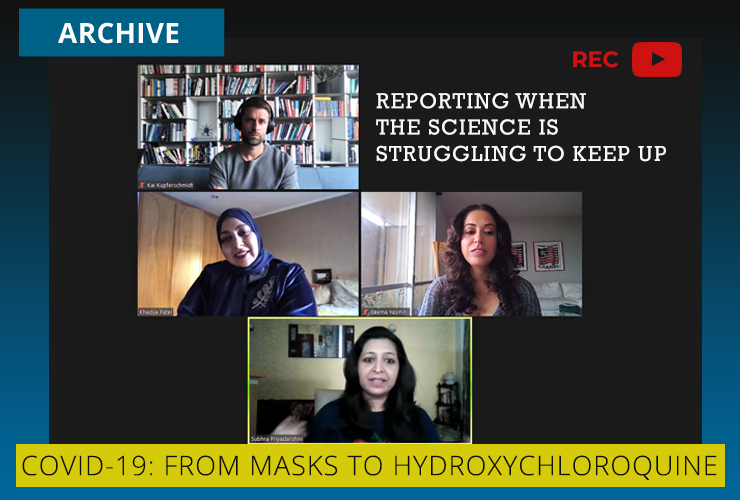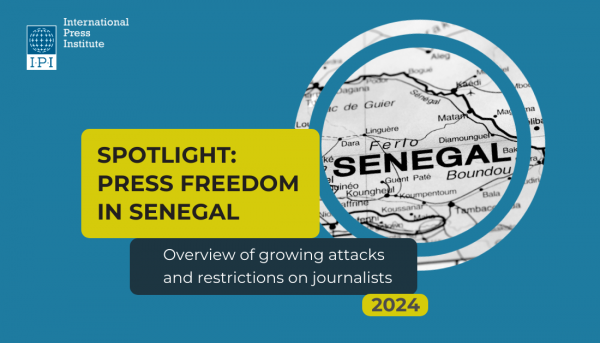The Covid-19 story mutates and changes as fast as the virus spreads. Journalism needs to respect the science, but what about when the science itself is struggling to keep up? Or when governments spread unverified claims?
In this online discussion organized by International Press Institute (IPI), prominent health and science journalists and writers talked about how they manage this once in a life-time challenge and, going beyond statistics, safety tips and health warnings – they discussed how to:
* approach the task of reporting on the pandemic
* select the information that is most important for our audience
* help communities understand and navigate this moment amid the noise, confusion and disinformation.
Speakers:
Kai Kupferschmidt, science journalist, molecular biologist, contributing correspondent at Science magazine, Berlin
Khadija Patel, IPI vice chair; former editor-in-chief of the Mail & Guardian, Johannesburg (moderator)
Subhra Priyadarshini, chief editor, Nature India, New Delhi
Dr. Seema Yasmin, physician, journalist, author; director, Stanford Health Communication Initiative; clinical assistant professor, Stanford University Department of Medicine
(See speakers’ bios bellow)
Kai Kupferschmidt is a science journalist based in Berlin, Germany. He is a contributing correspondent for Science magazine and writes for several German newspapers. Kai received a diploma in molecular biomedicine from the University of Bonn, Germany and later visited the Berlin Journalism School. He has won several prizes for his work and has written two books, one about infectious diseases and one about the color blue.
Khadija Patel is the vice chair of the International Press Institute and the former editor-in-chief of the Mail & Guardian and a co-founder of the The Daily Vox. As a journalist she has produced work for Sky News, Al Jazeera, The Guardian, Quartz, City Press and the Daily Maverick, among others. She is also a research associate at WISER (Wits Institute for Social and Economic Research at the University of Witwatersrand) and has also worked in community media. In 2017, she was among 11 people from across Africa and the diaspora who were awarded the inaugural Africa #NoFilter fellowship from the Ford Foundation and in 2018, she was awarded honorary membership of the Golden Key Society. She is passionate about the protection and enhancement of global media as a public good.
Subhra Priyadarshini is an award-winning science journalist and the chief editor of Nature India, Nature Research Group’s (NRG) India operations, the largest platform of science news in India. Subhra worked as a journalist with major Indian dailies The Times of India, The Indian Express, The Asian Age, The Telegraph, India’s premier news agency Press Trust of India and Down To Earth magazine. She has been a British Chevening scholar, a Robert Bosch fellow, an IREX-UNESCO fellow and a Kavli Prize Media Scholarship awardee. Subhra trains Indian scientists in science communication and presentation skills and helms the Nature India-Wellcome Trust Science Media Fellowships for India. She also trains health and medical journalists at Fact and Fit, a Google News supported initiative to combat medical misinformation.
Dr. Seema Yasmin is an Emmy Award-winning medical journalist, epidemiologist, public health physician and author. She is Director of the Stanford Health Communication Initiative, clinical assistant professor in the Department of Medicine at Stanford University and a former officer in the Epidemic Intelligence Service at the U.S. Centers for Disease Control and Prevention. She is the author of three books including the forthcoming Viral BS: Medical Myths and Why We Fall for Them.



